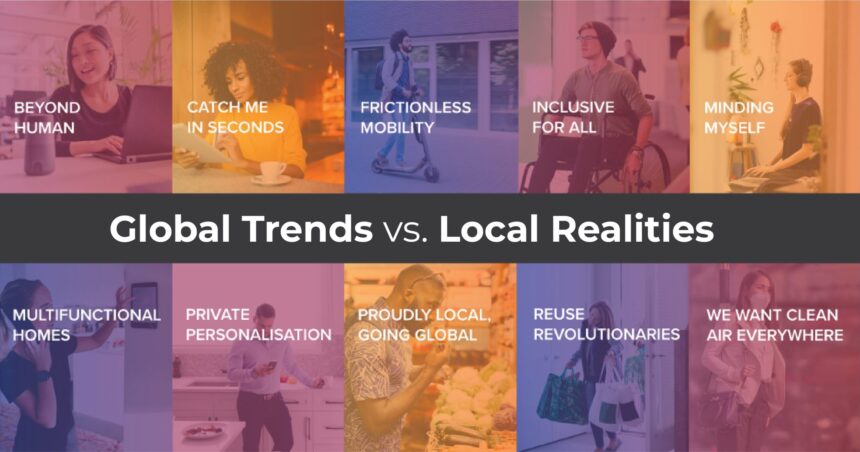Global Trends vs. Local Realities: What Nigerian Entrepreneurs Need to Know in 2025
Nigerian entrepreneurs face a unique challenge: balancing global business trends with local realities. The world is moving fast with new technologies, digital marketing strategies, and consumer behaviors, but Nigeria’s market has its own rules. From unreliable power supply to cultural preferences, local factors shape how businesses succeed. This guide explores key global trends, how they apply to Nigeria, and practical tips for entrepreneurs to thrive. By understanding both global and local dynamics, you can build a business that stands out and grows sustainably.
Why Global Trends Matter for Nigerian Entrepreneurs
Global trends set the pace for innovation and competition. They show what customers worldwide expect, from e-commerce to sustainability. Nigerian entrepreneurs can use these trends to stay competitive, attract investors, and reach global markets. For example, a 2024 report by McKinsey shows that 60% of global consumers prefer brands with strong digital presence. Ignoring trends like online shopping or AI tools could leave your business behind.
But global trends don’t always fit Nigeria’s reality. Limited internet access in rural areas, high logistics costs, and local tastes can clash with global strategies. The key is to adapt these trends to Nigeria’s unique challenges and opportunities.
Key Global Trends for 2025
Here are the top global trends Nigerian entrepreneurs should watch, along with how to make them work locally:
1. Digital Transformation and E-Commerce
The world is going digital. Online shopping is expected to hit $7 trillion globally by 2025, according to Statista. Customers want fast, easy ways to buy products from their phones. In Nigeria, e-commerce is growing, with platforms like Jumia and Konga leading the way. But challenges like poor internet and distrust in online payments slow adoption.
Local Tip: Start small with a mobile-friendly website or WhatsApp Business for sales. Use cash-on-delivery to build trust. For example, a Lagos-based fashion brand could sell through Instagram, using local influencers to drive traffic. Optimize your site for SEO with keywords like “buy clothes online Nigeria” to rank higher on Google.
2. Sustainability and Ethical Business
Globally, customers care about eco-friendly products. A 2024 Nielsen study found 73% of consumers prefer sustainable brands. In Nigeria, this trend is growing, especially among younger urban customers who value ethical practices.
Local Tip: Use local materials to cut costs and appeal to eco-conscious buyers. For instance, a skincare brand could use shea butter sourced from northern Nigeria and market it as sustainable. Highlight your efforts on social media with hashtags like #EcoFriendlyNigeria to boost visibility.
3. AI and Automation
AI tools like chatbots and data analytics are transforming businesses worldwide. They help companies understand customers and save time. In Nigeria, where labor is often manual, AI can streamline tasks like inventory or customer service.
Local Tip: Use affordable AI tools like free chatbots on WhatsApp or simple analytics from Google to track sales. A restaurant in Abuja could use a chatbot to take orders, saving staff time. Search for “AI tools for small businesses Nigeria” to find budget-friendly options.
4. Remote Work and Gig Economy
The gig economy is booming globally, with platforms like Upwork connecting businesses to freelancers. In Nigeria, unemployment drives demand for flexible work, but unreliable internet and power outages create hurdles.
Local Tip: Hire local freelancers for tasks like graphic design or content creation. Use platforms like Jobberman or create a network on WhatsApp. To attract talent, optimize your job postings with keywords like “freelance jobs Nigeria” to rank on Google.
Local Realities Nigerian Entrepreneurs Must Face
Nigeria’s market is vibrant but tough. Here are key local realities and how to navigate them:
1. Infrastructure Challenges
Power outages and poor roads make business harder. For example, logistics costs can eat up to 20% of revenue, per a 2024 World Bank report. These issues make global trends like fast e-commerce delivery tricky.
Solution: Plan for backups. Use solar power for small businesses or partner with local delivery services like Gokada to cut costs. Highlight reliable delivery in your marketing to stand out.
2. Cultural Preferences
Nigerians value trust and community. Customers often prefer brands they know or those endorsed by local influencers. Global marketing strategies like cold emails may not work as well as personal connections.
Solution: Build trust through local engagement. Host events or partner with community leaders. A food business in Enugu could sponsor a local festival and share it online with keywords like “Nigerian food brands” to boost SEO.
3. Payment Systems
Globally, digital payments like PayPal dominate, but in Nigeria, cash is still king. Many customers don’t trust online payments due to fraud concerns.
Solution: Offer multiple payment options, like bank transfers, mobile money, or cash-on-delivery. Use trusted platforms like Paystack to process payments securely. Promote your payment options with phrases like “safe online payments Nigeria” to attract search traffic.
4. Regulatory Hurdles
Nigeria’s regulations can be complex. Taxes, permits, and import duties change often, affecting costs and planning. Global businesses may not face these same issues.
Solution: Stay informed through local business groups or consultants. Join networks like the Lagos Chamber of Commerce for updates. Share your compliance efforts in blog posts with keywords like “Nigerian business regulations” to build authority online.
Dont miss: From Local to Global: A Nigerian Startup’s Branding Journey in 2025
How to Blend Global Trends with Local Realities
To succeed, Nigerian entrepreneurs need a strategy that mixes global ideas with local know-how. Here’s how:
- Start Small and Scale: Test global trends like e-commerce on a small scale. For example, sell on Instagram before building a full website. This saves money while you learn what works.
- Know Your Audience: Study your customers’ habits. Urban millennials in Lagos may love trendy, sustainable products, but rural customers might prioritize affordability. Use Google Analytics to track what your audience searches for.
- Leverage Local Networks: Use Nigeria’s strong community ties. Partner with local influencers or businesses to build trust. For example, a tech startup could collaborate with a popular Nigerian YouTuber to promote their app.
- Optimize for SEO: To trend on Google, use keywords like “Nigerian entrepreneurs,” “start a business in Nigeria,” or “local business tips” in your website and blog content. Write clear, helpful posts like this one to rank higher.
- Invest in Training: Global trends like AI require skills. Train your team on tools like Google Ads or Canva for marketing. Affordable online courses can help, searchable with terms like “digital skills Nigeria.”
Common Mistakes to Avoid
Nigerian entrepreneurs often stumble when they:
- Copy global strategies without local tweaks, like expecting fast internet everywhere.
- Ignore cultural preferences, such as pushing formal ads in a market that loves personal connections.
- Skip SEO, missing out on free Google traffic.
- Overlook local partnerships that could cut costs or boost reach.
Conclusion
Nigerian entrepreneurs can win by blending global trends with local realities. Embrace e-commerce, sustainability, and AI, but adapt them to Nigeria’s infrastructure, culture, and payment habits. Start small, test ideas, and use local networks to grow. With SEO-optimized content and a focus on what makes Nigeria unique, your business can thrive in 2025 and beyond. Ready to start? Let Bintus Art and Everything pick one global trend, tweak it for your local market, and watch your business grow.
Image source: Archive.researchworld.com/






